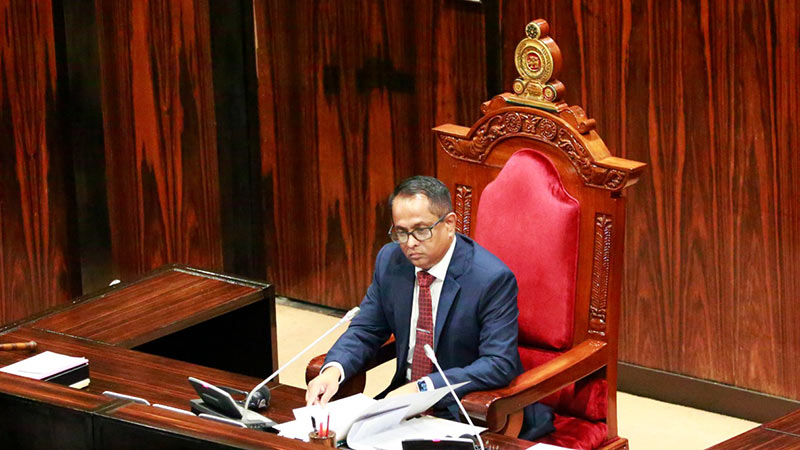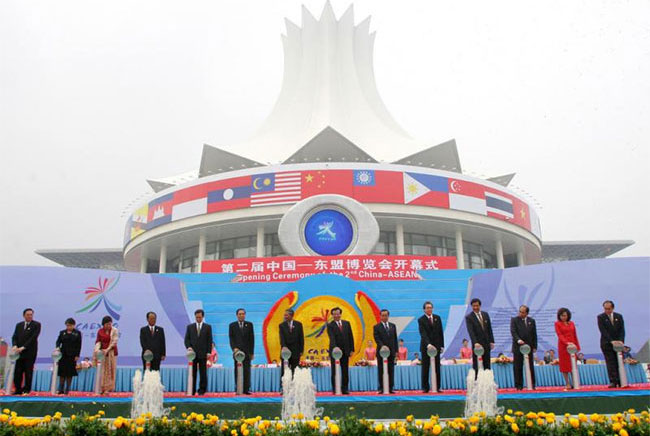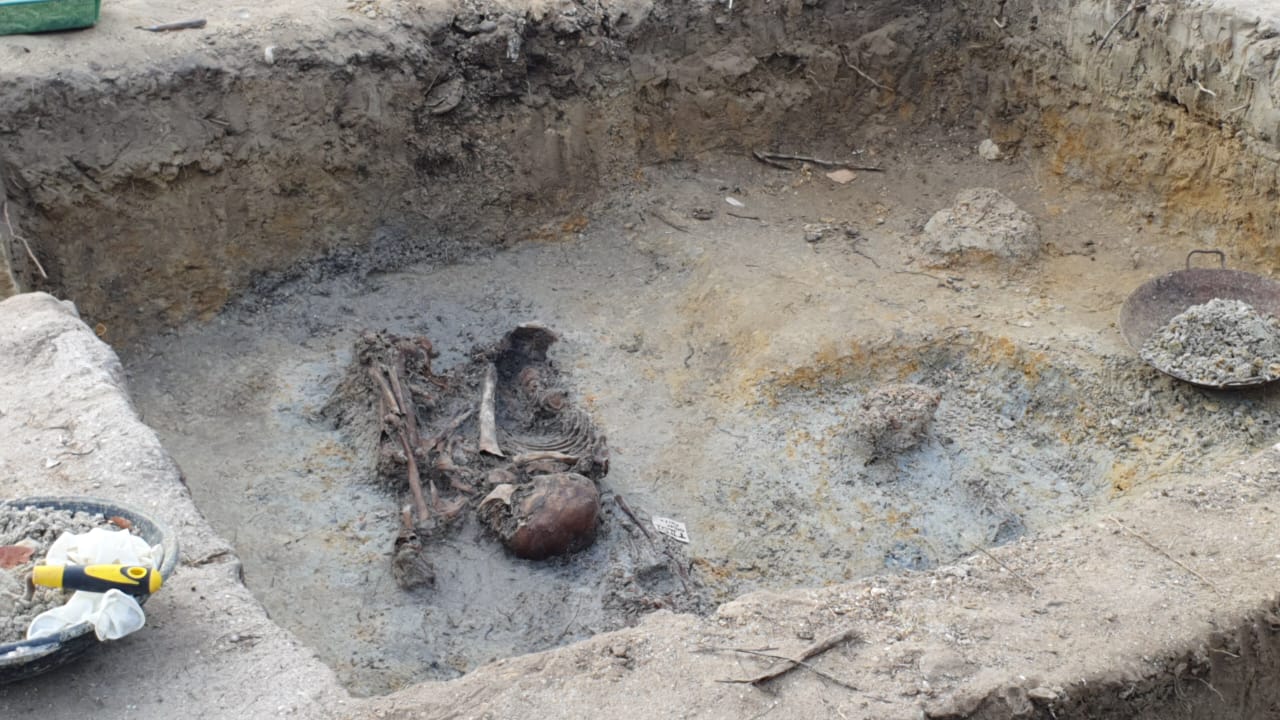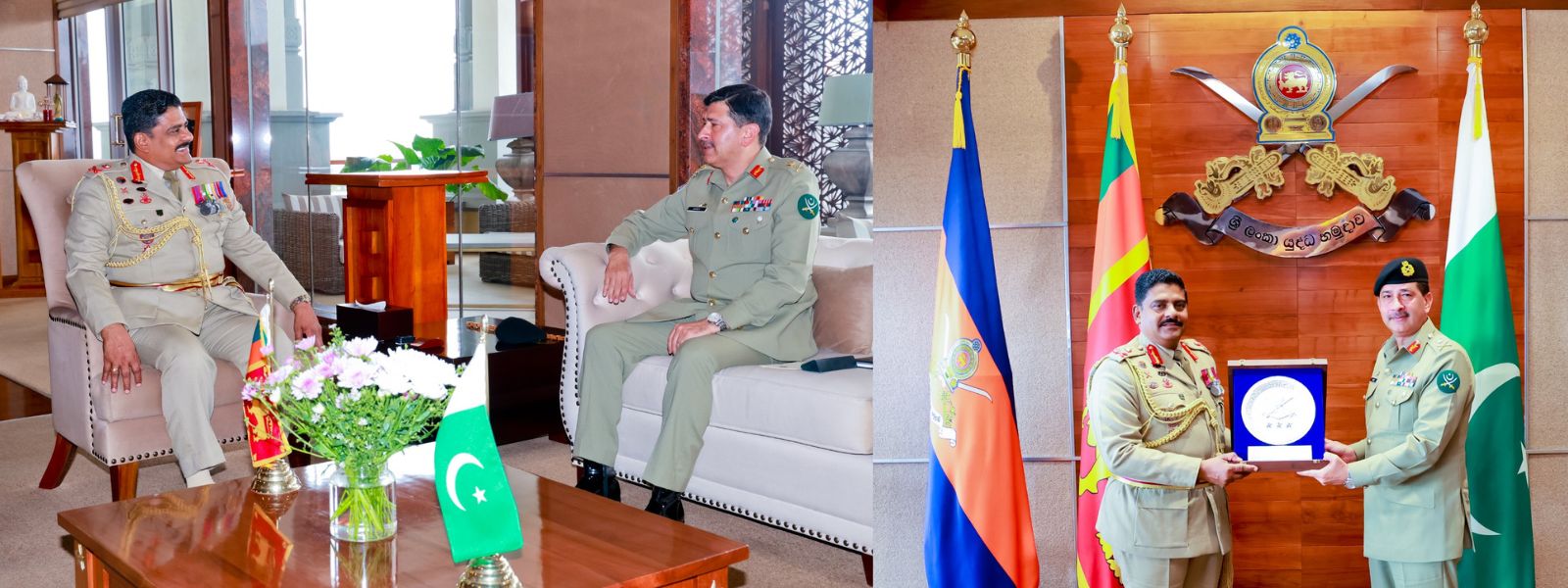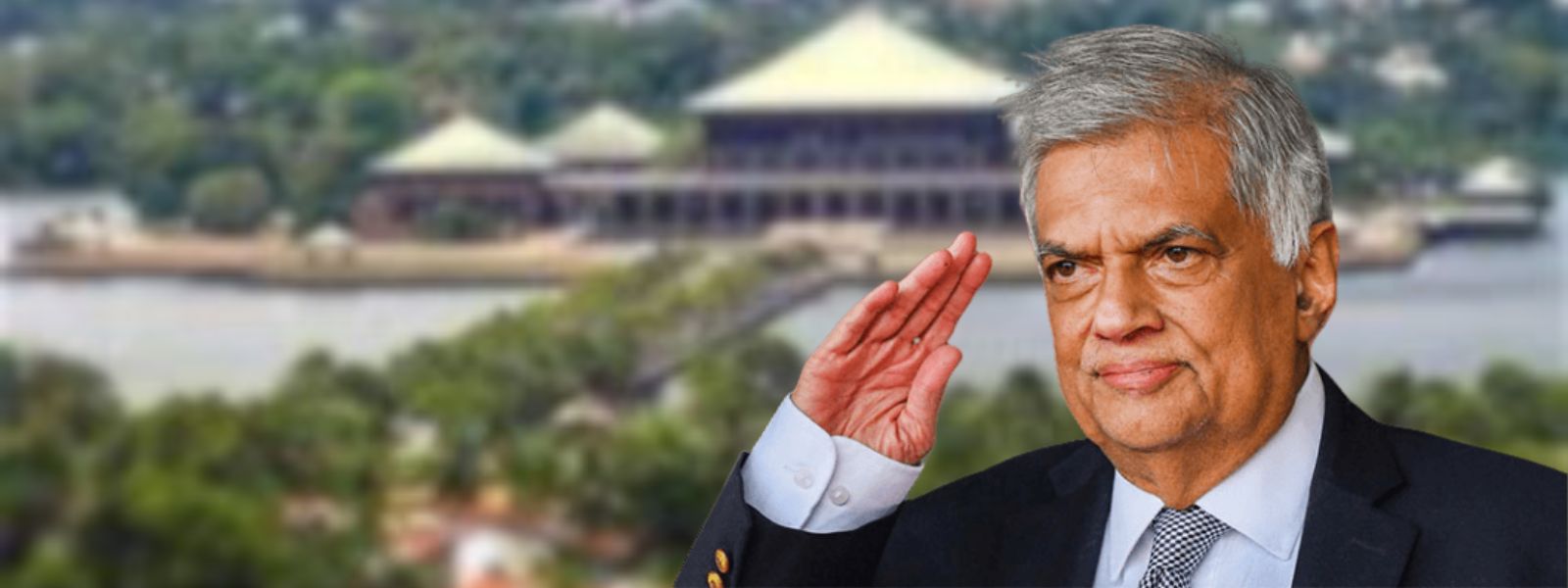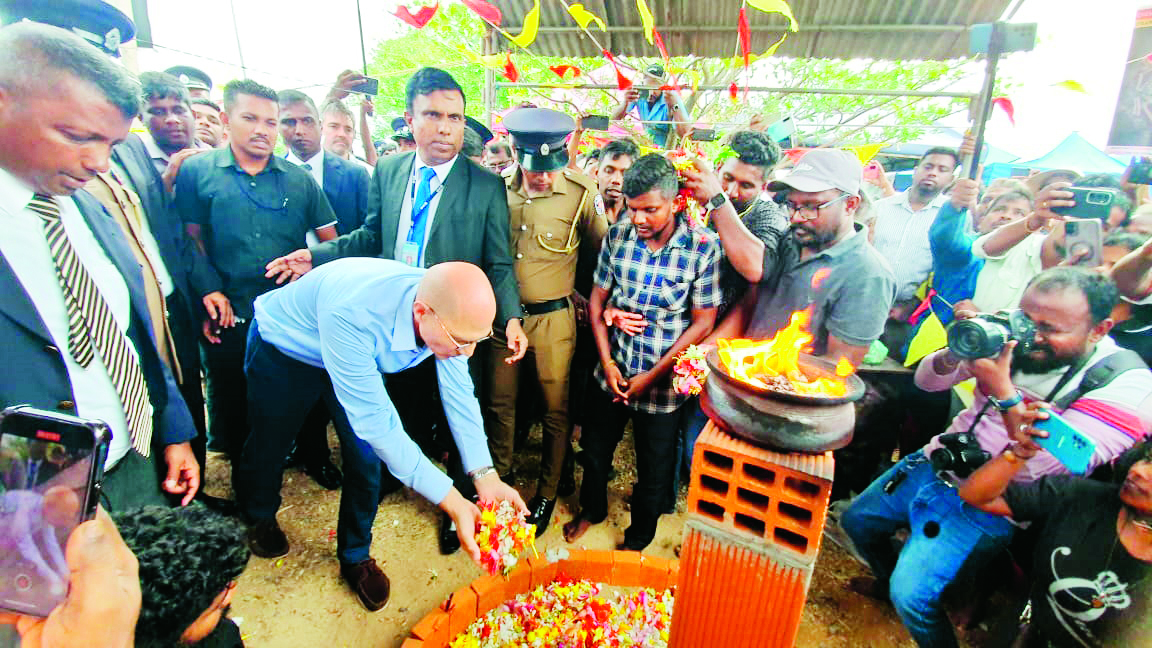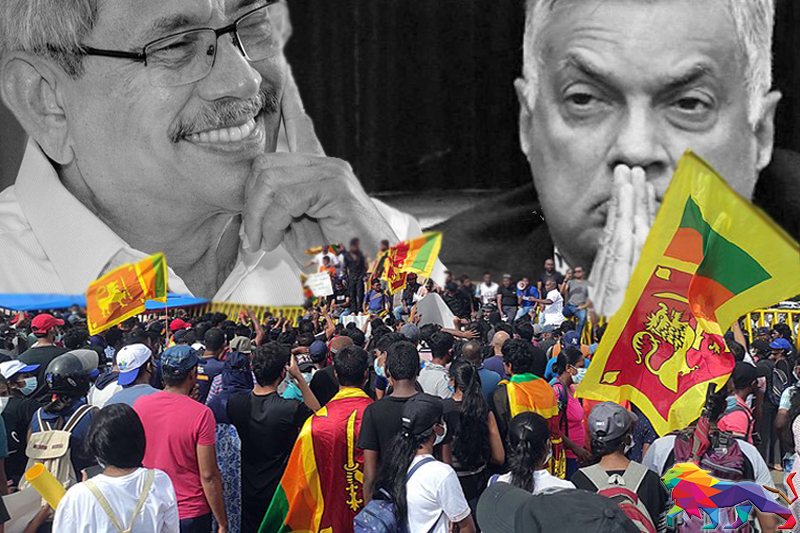Sri Lanka has listened to British advisors after independence and gone down the same path of decline of the UK that was eventually halted by Keith Joseph and Margarat Thatcher, ex-President Ranil Wickremesinghe said.
“One this that struck me was that, after reading your book, that Sri Lanka’s governments, all the advisors we got…were all from UK,” Wickremesinghe said at the launch of a book by Sarath Rajapatirana, a top Sri Lanka economist and one time World Bank staffer.
“At that time, the UK was declining. Without an empire, even after they joined the EU, it was in decline.
“It’s only Margarat Thatcher and Keith Joseph, who stopped it. So, we went down with it (UK).”
After the collapse of the Bretton Woods from full employment policies (similar to potential output targeting) and the rise of so-called ‘Cambridge economics’, by the 1970s the UK was mired in inflation, low growth and an IMF program, the largest up to that time.
The Conservatives were in opposition after instability and labour unrest from a Sri Lanka style aggressive macro-economic policy (VAT cuts and money printing) deployed by then Chancellor Anthony Barber (the Barber boom).
Keith Joseph and Thatcher set up a new think tank called the Centre for Policy Studies to bring classical economics and economic freedoms back to Britain.
By that time economics as developed by the British Classical Greats had survived in Germany while it was lost in the UK under the onslaught of Cambridge Economics’ which had spread throughout Britain except in a few universities like LSE where Friedrich Hayek had taught.
The think tank was originally supposed to be the called the Erhard Foundation, after Ludwig Erhard, the Economy Minister and later Chancellor of West Germany who countered post-war inflation and started the German Economic Miracle with Bank deutscher Länder (BdL), the pre-cursor of the Bundesbank.
Joseph proposed that the UK should have a German style Social Market Economy, a term which he explained was coined by Alfred Müller-Armack, an academic from Cologne University, who worked with Erhard and became a minister in “Why Britain Needs a Social Market Economy“.
The first step to setting up the social market economy was to defeat inflation.
Joseph explained that British industry was ‘de-capitalized’ by inflation. In a remarkably insightful speech Joseph pointed out that profits UK companies were reporting were overstated as depreciation was in historical cost but replacement costs were rising each year.
Meanwhile the government was taxing non-existent real profits as inflation boosted nominal profits further hurting firms.
“..[T]he tax authorities allow firms to offset depreciation of their assets against tax only on the basis of historic cost, although we know very well that a new machine will now cost two or three times what the old one did,” he said in a 1974 speech, Inflation is De-capitalizing British Industry.
“In other words, profits in company accounts are inflated three times over – as revenue; by revaluing stocks, and by understating true depreciation.”
“You may say that it is illegal to pay dividends out of capital; directors have been tried and imprisoned for this in the past. True, but that was in the bad old days when money retained its value for decades.”
Wickremesingh as Prime Minister, also tried Social Market Economy from 2015 to 2019 but failed the parliament nor the government could not control the central bank.
In early 2025 analysts had warned that he would fail, unless the central bank was controlled, as money was being printed to cut rates even as Wickremesinghe came to power to push down rates, and it was not possible to run a social market economy under aggressive inflationary policy.
Related : Sri Lanka needs Central Bank reforms for a Social Market Economy: Bellwether
High Inflation Mystery
However it was also under President Wickremesinghe that macroeconomists got themselves a 5 percent inflation target, which can go up to 7 percent.
It is not clear how ex-President Wickremesinghe, who knew about Keith Joseph, permitted macroeconomists to get away with 5 – 7 percent inflation a year on the public.
RELATED : Sri Lanka central bank reveals motives for demanding 5-pct inflation target
Sri Lanka’s poverty has rocketed after the last currency crisis and neither the industry nor the poor have the wealth or the flesh in the bones to pay this inflation to those who believe in inflation, observers say.
By the 1970s macroeconomists had successfully spread the doctrine that inflation was cost-push or partly cost push, and it was good or necessary for growth, rejecting classical economics and firing social unrest and political instability.
“When the money supply grows too quickly, inflation results. This has been known for centuries,” Joseph said in another landmark speech, Inflation is Caused by Governments.
“Until a few years ago I should not have had to labour the point. Now an influential group in Whitehall, Cambridge and the National Institute of Economic and Social Research seem to deny the proposition.”
By denying the monetary nature of inflation and not holding the Bank of England accountable, policy makers instead tried to control its effects through futile administrative actions known as ‘incomes policy’, including wages of people already impoverished by the central bank.
Inflationist Road to Serfdom
Both Joseph and Thatcher had read Friedrich Hayek’s Road to Serfdom. But Joseph had gone deeper to understand what he once called the Socialist-Keynesian thesis.
The orthodoxy at the time was prosperity could be solved by increasing state intervention and undermining markets or denying individual choice and suppressing the price system.
“It was in revolt against this trend and the policies it bred that Hayek wrote The Road to Serfdom, which had such a great effect upon me when I first read it — and a greater effect still, when Keith suggested that I go deeper into Hayek’s other writings,” Thatcher said in a Keith Joseph memorial speech in 1996, two years after his death.
‘”We are rapidly abandoning not the views merely of Cobden and Bright, of Adam Smith and Hume, or even of Locke and Milton, but one of the salient characteristics of Western civilization…” ‘ Thatcher said quoting Hayek
‘ “Not merely nineteenth- and eighteenth-century liberalism, but the basic individualism inherited by us from Erasmus and Montaigne, from Cicero and Tacitus, Pericles and Thucydides is progressively relinquished.”
The conservatives under her government “placed far greater confidence in individuals, families, businesses and neighbourhoods than in the State,” she said.
Cambridge Economists
But 15 year earlier, in 1981, Cambridge and other macroeconomists university academics had descended like a wolfpack on Thatcher opposing her deflationary policies.
“There is no basis in economic theory or supporting evidence for the Government’s belief that by deflating demand they will bring inflation permanently under control and thereby induce automatic recovery in output and employment,” 364 academics wrote to Thatcher in 1981 in a University of Cambridge letterhead.
“The present policies will deepen the depression, erode the industrial base of our economy and threaten its social and political stability.”
Hayek fired a letter to The Times from Germany in her support before the week was out.
“It should surprise no one that the lost generation of British economists who had succumbed to the teaching of Lord Keynes should form a panicky mob when a reversal of the policies they had inspired reveals the damage they have done,” Hayek wrote.
“They significantly can only refer to, but cannot specify, the “other methods” by which their professed aim can be achieved,” he pointed out.
Britain recovered like Sri Lanka is starting to now grow back from the sovereign default, as the central bank missed its inflation target.
The Thatcher administration looked to Hayek, and also Milton Friedman, (Friedman disapproved of Thatcher’s VAT hike and wanted to compress spending further) though he also approved monetary tightening.
Meanwhile, Wickremesinghe said Sri Lanka had got advisors including from the “Sussex School of Development and some funny creatures that come out of it,” Wickremesinghe quipped at the Advocata forum.
Wickremesinghe also said he believed East and South East Asian nations had got advice from the US and from Harvard economists. He did not specify which.
But Japan and the Yen was stabilized by Joseph Dodge, an American banker who had worked with Ludwig Erhard to introduce the Deutsche Mark in post-war Germany.
US experts through the Economic Co-operation Administration (ECA), however, had spread instability by by advising Keynesian remedies and central bank credit funded development banks including to Japan which was hit by triple digit inflation as a result until Dodge came.
Taiwan’s exchange rate was stabilized by a student of Hayek at the London School of Economics. Singapore was also fixed by Goh Keng Swee who had studied at LSE.


